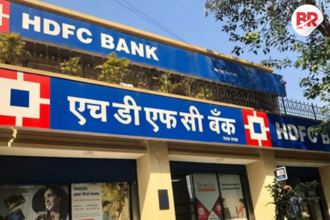
Jindal Poly Films is doubling down on growth. The company has announced a massive ₹700 crore investment in expanding its film production capacity. This bold move will see new lines for BOPP, PET, and CPP films, significantly increasing the company’s output.
The new production lines will be a game-changer. With a BOPP line capable of producing up to 42,000 tonnes per year, a PET line at 55,000 tonnes, and a CPP line adding 18,000 tonnes annually, Jindal Poly Films is setting its sights on the future. These new lines are expected to be up and running in the next two to three years.

But what does this mean for the industry?
Flexible packaging is a booming sector, driving demand in industries like food, beverages, personal care, and pharmaceuticals. As market demand grows, Jindal Poly Films is gearing up to meet it head-on.
The company’s expansion strategy focuses on leveraging cutting-edge technology and efficiency to capture more of the market share.
It’s not just about size. Jindal Poly Films is investing in the most advanced technology available. These new lines will be equipped with high-quality equipment and optimized for process efficiency, ensuring superior output, reliability, and customer satisfaction. Simply put, they are aiming for the gold standard in packaging.
Also Read Air India and IndiGo Cancel Flights Amid Security Concerns: What You Need to Know
This expansion comes on the heels of a solid financial performance. Jindal Poly Films has seen a 43% year-on-year growth in its revenue for the first nine months of FY 2024-25.
Despite challenges in the market, including pricing pressures, the company is confident that these new investments will help secure its leadership position in the competitive packaging industry.
Jindal Poly Films is a key player in the flexible packaging world. A subsidiary of the BC Jindal group, the company manufactures a wide range of packaging films, including BOPET, BOP, and non-woven fabrics. Their commitment to staying ahead of the curve, whether through expansion or innovation, is clear.
The real question is, will this new capacity be enough? The flexible packaging industry has been growing at a rapid pace, and it’s likely that more investments will follow as demand continues to rise. However, Jindal Poly Films is positioning itself to lead the charge, regardless of what the competition does next.
This ₹700 crore investment is more than just a business move. It’s a statement. Jindal Poly Films is not just expanding—it’s staking a claim as a leader in the flexible packaging sector. Whether you’re an investor, a competitor, or a consumer, this is a company to watch.
Also Read What Cochin Shipyard Is Doing with Dubai Could Change India’s Global Future












